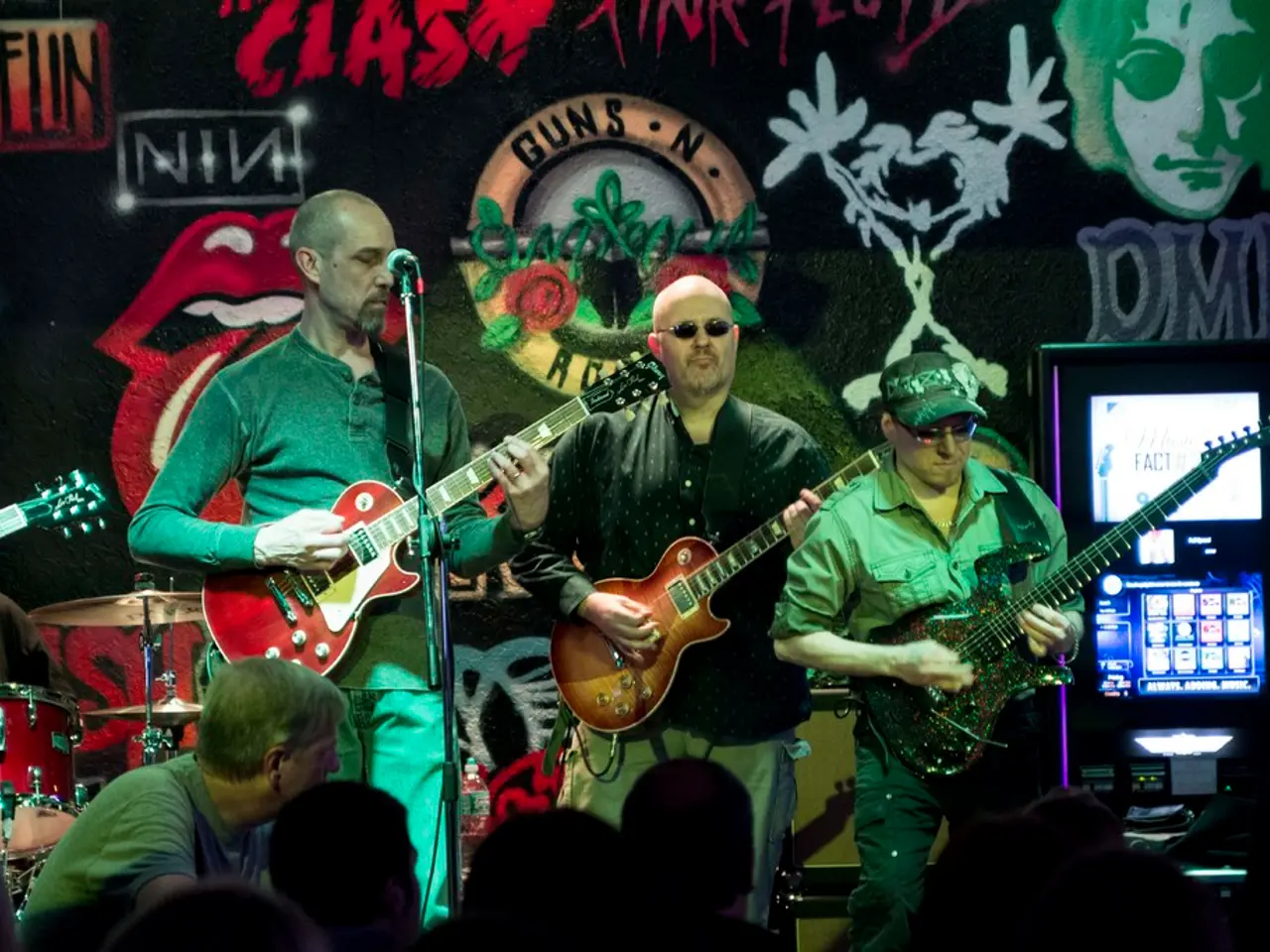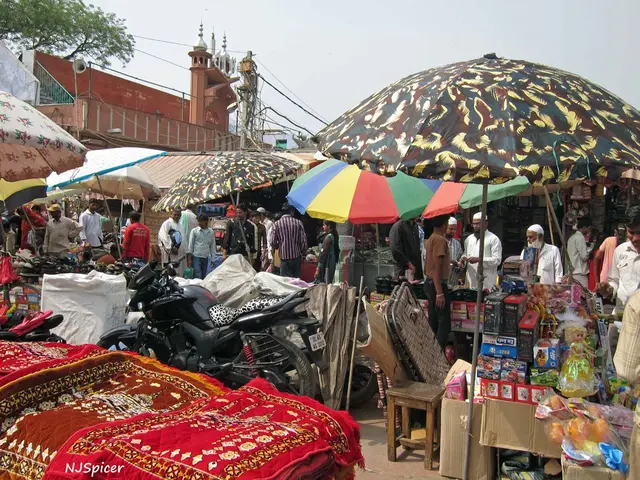Edinburgh's International Festival faces potential financial downturn; violinist Nicola Benedetti advocates for necessary funding to preserve the cultural event.
Edinburgh International Festival Faces Funding Challenges, but Future Looks Promising
The Edinburgh International Festival (EIF), one of the world's greatest arts events, is currently grappling with significant funding challenges. These issues, stemming from government cuts and funding instability, have impacted the festival's scale, community outreach, and the participation of artists and performers.
Nicola Benedetti, the Grammy-winning classical violinist who took over as EIF's director in 2022, has expressed concerns about the financial situation of the festival. She believes that the EIF's leading position on the worldwide arts and culture scene is under threat.
Recent years have seen a series of "muddled funding announcements, cuts, and U-turns," which have contributed to uncertainty within the cultural sector. Artists and performers have reported feeling priced out of participation due to financial pressures, leading to a smaller, more insular festival with reduced free community access such as school tickets.
Controversy has also arisen over the festival's reliance on funding from corporate sponsors like Baillie Gifford, which has faced criticism related to political and ethical issues, complicating the festival's funding landscape.
However, there is hope on the horizon. The Scottish government has pledged increased funding for arts and culture, aiming to improve financial certainty and sustainability over the medium term. Scottish First Minister John Swinney described funding for culture as "preventative spend" aimed at societal benefits beyond economic returns, emphasizing longer-term funding stability over short-term electoral cycles.
The government has committed to increasing overall arts and culture funding by £100 million by 2028-29, including a £34 million rise confirmed last year. This increase is expected to ease pressures on festivals like the EIF and improve "certainty and stability."
Benedetti, in her role as EIF director, is using her influence to highlight the consequences of decreasing funding to the arts. She has called for wealthy individuals and businesses to view philanthropy as a duty to support the arts.
In the coming years, Benedetti plans to look at the next three to four years of the festival as one grand opera that builds and builds towards the 80th anniversary in 2027, a huge celebration of the festival's artistic impact. After the anniversary, she intends to be incredibly bold with what she's doing next in the festival's programming.
This year's Edinburgh International Festival has been significantly impacted by a lack of funding. The opening event has been cancelled, and the planning for the festival must be done a year ahead of the opening of the event. Benedetti hopes that the upcoming spending plans will be sufficient to fund an expansion of the festival's programming in the future.
Creative Scotland, the government's arts agency, is due to publish its spending plans in late January. The success of these plans will be crucial in ensuring the continued success and growth of the Edinburgh International Festival.
[1] BBC News, "Edinburgh Festival Fringe funding cut 'threatens culture'," 14 October 2022. https://www.bbc.co.uk/news/uk-scotland-scotland-politics-62866610
[2] The Guardian, "Edinburgh International Festival: 'We're not a luxury item, we're a vital part of the city'," 28 July 2022. https://www.theguardian.com/culture/2022/jul/28/edinburgh-international-festival-scotland-arts-cuts-nicola-benedetti
[3] The Scotsman, "Edinburgh International Festival: Nicola Benedetti on the future of the festival," 29 July 2022. https://www.scotsman.com/arts-and-entertainment/edinburgh-international-festival-nicola-benedetti-future-festival-4472658
[4] The National, "Edinburgh International Festival: Nicola Benedetti calls for more support from business and philanthropists," 29 July 2022. https://www.thenational.scot/news/18964638.edinburgh-international-festival-nicola-benedetti-calls-support-business-philanthropists/
[5] The Herald, "Edinburgh International Festival: Nicola Benedetti urges businesses to support arts," 29 July 2022. https://www.heraldscotland.com/news/19878642.edinburgh-international-festival-nicola-benedetti-urges-businesses-support-arts/
- In addition to music education, the Scottish government has pledged to increase funding for various other sectors, including lifestyle, fashion-and-beauty, food-and-drink, home-and-garden, and education-and-self-development.
- Viewing philanthropy as a duty, Benedetti, the EIF director, is advocating for wealthy individuals and businesses to support not just the arts, but also other areas such as relationships, sports, shopping, and even casino-and-gambling for a balanced societal development.
- As Benedetti works towards expanding the festival's programming, she envisions also exploring partnerships with travel and cars industries to make the festival more accessible for both artists and attendees.
- Despite its funding challenges, the EIF's mission to promote arts and culture in Edinburgh continues. Much like how the festival serves as a catalyst for growth in arts, the festival could potentially stimulate the local weather industry through seasonal events that attract tourists.
- As the Arts agency, Creative Scotland prepares to publish its spending plans, decisions made in the realm of lifestyle, fashion-and-beauty, food-and-drink, home-and-garden, relationships, pets, sports, and shopping may equally influence the future of the Edinburgh International Festival.
- With an ongoing focus on sustainability, the festival's next three to four years are expected to make substantial progress in reducing its carbon footprint in the areas of home-and-garden, food-and-drink, and travel.
- Through her advocacy for philanthropy, Benedetti hopes that her efforts will not only ensure the future of the Edinburgh International Festival, but also inspire pet owners, car enthusiasts, and corporate leaders to recognize the importance of supporting arts and culture as a social and economic investment for the city.




